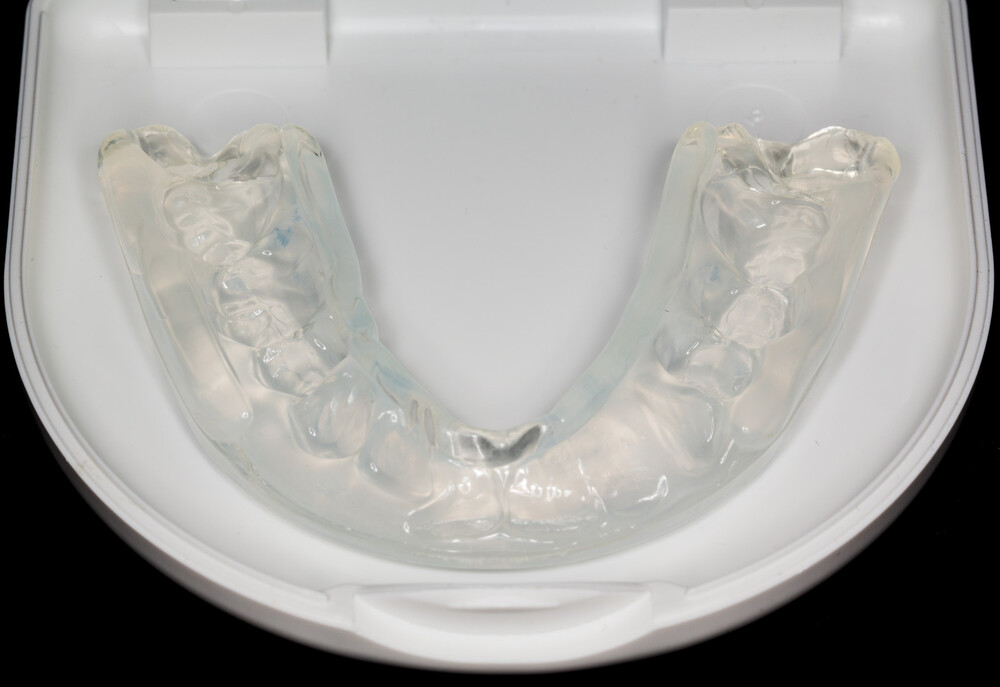Yes, using Invisalign to address an overbite can be a successful treatment choice!
As a standard orthodontic process, Invisalign progressively moves teeth into the proper positions using a series of transparent, removable aligners. Read on to learn how getting Invisalign near you can help fix your bite pattern.
Possible Reasons for Overbites
Overbites, which happen when the upper front teeth significantly overlap the lower front teeth, might be caused by several factors:
Genetics: In many cases, overbites can be inherited from parents. Specific jaw and tooth structures can be passed down through generations, leading to a predisposition for an overbite.
Thumb-sucking or pacifier use: Prolonged thumb-sucking or pacifier use beyond the age when the permanent teeth erupt can cause the upper front teeth to push forward, leading to an overbite.
Malformation of the jaw: Issues with jaw development, such as a small lower jaw or a more prominent upper jaw, can result in an overbite. This misalignment of the jaws can create an uneven bite relationship.
Teeth overcrowding or tooth loss: When there is insufficient space in the mouth for all the teeth to align correctly, overcrowding can occur. This can lead to the upper front teeth protruding over the lower teeth, causing an overbite. Similarly, tooth loss can result in the remaining teeth shifting positions, potentially leading to an overbite.
Habits and oral posture: Poor oral posture, such as resting the tongue against the front teeth or pushing the tongue against them during swallowing, can contribute to the development of an overbite. Additionally, certain habits like tongue thrusting or mouth breathing can impact teeth and jaw positioning.
Jaw injuries or trauma: Trauma to the face or jaw can affect the alignment of the teeth and jaw, potentially resulting in an overbite.
It’s important to note that the causes of an overbite can vary from person to person, and often multiple factors can contribute to its development. Our dentist in Edmonton can assess the individual case, provide a proper diagnosis to determine the underlying cause of the overbite, and recommend the most appropriate treatment options.
Invisible Aligners for Treating Overbites
Clear aligners, like Invisalign, offer a convenient and effective treatment option for some instances of overbites. These custom-made aligners gradually shift the teeth into the desired position, correcting the overbite over time.
The treatment begins with a customized plan created by an orthodontist, who will use advanced imaging technology to map out the tooth movements. The aligners are then designed to apply gentle forces that gradually move the teeth.
One of the advantages of acquiring Invisalign is its removability, allowing for easy cleaning and maintenance of oral hygiene. They can be taken out while eating, eliminating any dietary restrictions, and can be removed for special occasions. Additionally, their virtually invisible appearance makes them a popular choice for individuals seeking a more discreet orthodontic treatment.
Regular check-ups with the orthodontist ensure the treatment progresses as planned, with adjustments made as necessary. It’s important to note that severe overbites or cases requiring significant jaw repositioning may require alternative orthodontic interventions. Our dental specialist can evaluate each case and recommend the most appropriate treatment for achieving optimal results.
Replacing Aligners with Retainers
After completing treatment with invisible aligners, individuals often transition to retainers. Retainers help maintain the corrected alignment of the teeth and prevent them from shifting back. The two basic categories of retainers are fixed and removable.
Removable retainers are similar to aligners and can be taken out for eating and cleaning. Fixed retainers consist of a wire bonded to the back of the teeth. The orthodontist will guide the wear schedule, initially requiring full-time wear and eventually transitioning to nighttime or specific wear times.
Retainers need proper care and maintenance, and long-term wear may be recommended to prevent relapse. Your orthodontist will provide personalized instructions based on your progress and needs. Regular follow-up appointments are essential to ensure the best outcome.
Conclusion
The best course of action is to speak with an orthodontist who can assess your bite and provide tailored treatment suggestions to establish whether Invisalign is appropriate for your particular scenario. At Albany Dental, we can evaluate your requirements and review the best choices for your unique smile. Call us today to begin!
